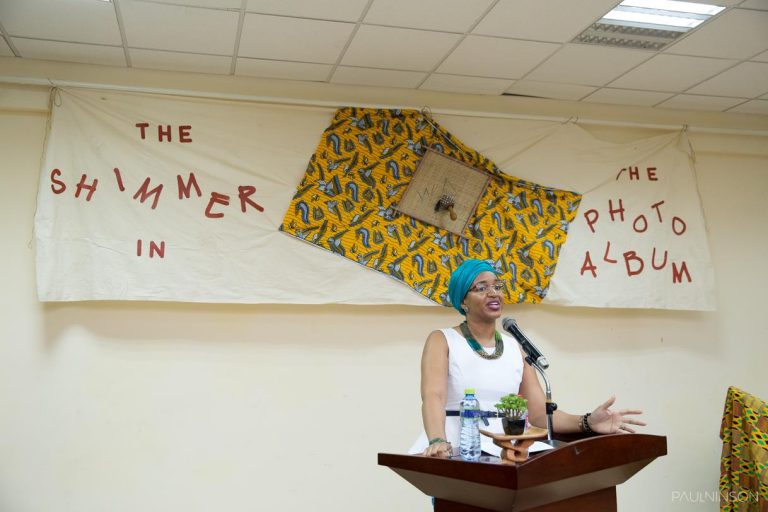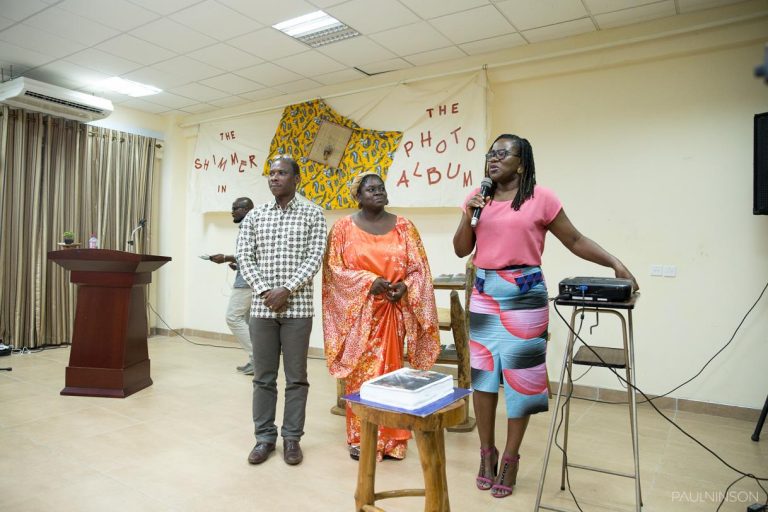Have you ever thought about the difference between being imaginative and being creative? Last week, I went to a book launch where educator Dr. Naomi Adjepong of Alpha Beta Education Centers asked this question. She suggested that imagination exists just in our head, while creativeness is acted out. Her context was Ghanaian education. Are we educating creatives in Ghana?

At the same event, spelling bee champion Eugenia Tachie-Menson spoke on how education can be fun and how reading books for pleasure is a wonderful way of improving both your thinking and vocabulary. (The event was fellow blogger Golda Addo’s book launch for her novel “The Shimmer in the Photo Album”, Golda is in the orange boubou below, next to Tachie-Menson).

I am lucky to send my children to a private school where both teachers and administrators are happy to take up suggestions from parents, however, they tell me that more often than not the parents that approach them demand “more exams, more exercises, and more sitting in the classroom”.
Personally, I would rather see children under the age of 5 or even 10 spend more time outdoors playing than sitting still and quiet in the classroom. The start-up Tinkergarten, sponsored by among others Omidyar Group, is developing outdoor activities to encourage children “tinkering” or playing outdoors. Activities include looking at bugs, making soap bubbles, or building a bird nest for humans! They write on their website:
“Tinkergarten’s curriculum both engages and delights a wide range of kids ages 18 months-8 years old. As a season unfolds, unique themes and challenges build lesson to lesson. These themes and challenges evolve one season to the next as children progress through the program. In each lesson, an engaging scenario unfolds that allows kids to launch and direct their own play. No two kids ever have the same experience, because it’s the process that matters. Adults play a role, too, as they observe, honor and support their child’s independent exploration and playful learning.”
To prepare our children for the future, I believe they have to be able to read and write, count and perhaps also march in rows, but importantly, in addition, they also need practice communication, empathy, solving problems in groups, building things, asking questions,seeing new places, adapting to different environments, failing and dusting themselves off to try again.
Are we educating creatives in Ghana? And if we are not, what will be the consequences?
Photo : Paul Ninson

